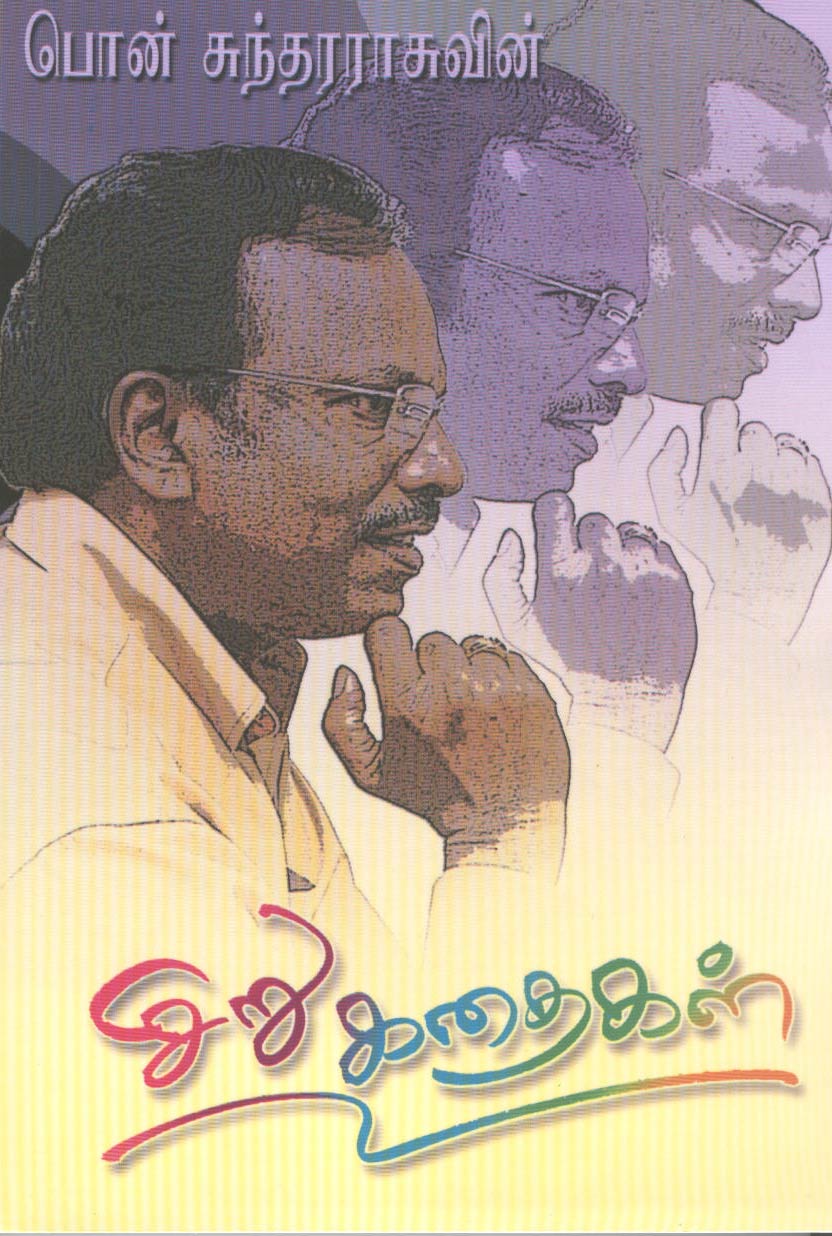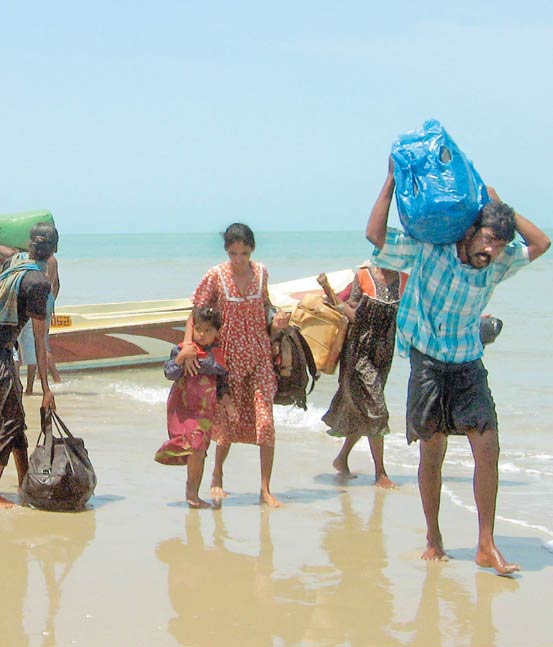
LITERARY CONTRIBUTIONS OF OVERSEAS INDIANS
Literary contributions from Overseas Indians in Indian languages, published in their own respective nations, have not been duly recognized until very recently.
Overseas Indians are an important part of the Indian civilization, and their contributions in every aspect of life, including literature in Indian languages, are in the increase.
While the Indian Diaspora in English speaking nations have shown their great literary merit by creating literary works in English that receive international awards year after year, and thus receive great adulation from the Indian public in India, creativity of Overseas Indians in Indian languages is not much publicized and recognized.
SOME REASONS
One of the reasons for this sorry state of affairs is the fact that the textbooks prepared in Indian languages in India have not, by and large, included such works in the Indian languages curriculum in India in any great measure. Prominent newspapers and magazines have not shown any great enthusiasm in this area. Another important reason has been the literacy level of the earlier generations of Overseas Indians in their mother tongues. And yet what is most amazing was their continued language loyalty through the retention of folktales, folksongs, naming processes, rituals, and interpersonal communication through their own dear mother tongues.
CONCERN FOR THE PROSPERITY OF OVERSEAS INDIANS
Protection of the property, life and culture of Overseas Indians has been a continuous thread of concern for the leaders of the Indian National Congress since its inception. Before he entered the mainline politics of India, Gandhi's early preoccupation was with the promotion of steps relating to the welfare of Overseas Indians. Documents relating to the freedom struggle in India are replete with resolutions that support the cause of Overseas Indians.
LACK OF ADEQUATE SUPPORT FOR INDIAN MOTHER TONGUES
The muddled culture and language policy of India since independence did not lend much support to the development of Indian languages overseas in nations that have become homelands for the earlier generations of Overseas Indians. After 1967 when DMK came to power in Tamilnadu, India, more interest was generated to help overseas Indians to retain and develop major mother tongues such as Gujarati, Kannada, Malayalam, Marathi, Telugu and Tamil besides Hindi.
WRITERS IN INDIAN LANGUAGES AMONG OVERSEAS INDIANS
We now have groups of writers among Overseas Indians who are willing to collect and analyze their own culture and language use, and to write creative works in their respective mother tongues, focusing on their living in their homelands.
PON. SUNDARARAJU - A BEACON
Pon. Sundararaju's eminent collection of short stories in Tamil, written with the ethos of Overseas Tamils in Singapore (and Malaysia), reveals the vitality of Overseas Tamils' literary activity.
TAMILNADU'S INTEREST IN OVERSEAS TAMILS
Sri Lankan Tamils were always seen as a part of the Tamil ethnic nation because of close religious and literary contacts, their contribution to Tamil grammar, their earnest desire and talents in developing prose as an important medium during the period when poetry alone was considered to be a major and respectable vehicle of written communication, and for the beauty of the dialect of Tamil used there. Much has been lost in the twentieth century; a systemic genocide of Tamils in Sri Lanka goes unchallenged because of various social and political trends in Tamilnadu. Great and dynamic institutions of Tamil learning and research have been destroyed, a land that was once contributing great insights in Tamil pedagogy is now in dire need of talents from India even to preserve their language.
Even before Subramania Bharathi wrote his immortal poem on the suffering of the Tamils in the Fiji Islands, social and political thinking among the Tamils in Tamilnadu was very sympathetic to the plight of Overseas Tamils. This sympathy, somehow, did not translate into admiration for the literary output of Overseas Tamils until recently.
PON. SUNDARARAJU'S CRAFT
Pon. Sundararaju's literary contributions span a period of more than forty years. His earliest literary creation is a short play written in 1968 for broadcast by the Singapore Broadcasting Corporation. Since then Sundararaju has been a consistent contributor to Malaysian-Singaporean Tamil literature and to the literature of the Tamils around the world. He adopts a style that is closer to the style of some of the leading short story and fiction writers of Tamilnadu in the sixties and seventies such as Akilan, Vallikannan, Mu. Varadarajan and Ku. Rajavelu.
Using simple written Tamil, Sundararaju is able to make his characters come alive through the use of simple conversational Tamil when they interact with one another and with the readers. Use of conversations is rather limited, but the interior monologues of the characters are abundant and these are presented in styles that are appropriate to the social, economic, and educational levels of the characters.
FOCUS ON HUMANITY - CHARACTERS VERSUS EVENTS
The stories in this collection revolve more around the characters than around the events. This is a very important characteristic of Sundararaju's stories. Humanity dominates the thinking and ideology of Sundararaju. He is a product of a generation that yearns for the welfare of the downtrodden among the Tamils while at the same time emphasizes the strength of the unity of the Tamils. His characters do reveal their social or caste identity, but, while one can discern the social or caste identity of his characters, Sundaraju's focus is on issues of day-to-day living, both material and psychological, common to the entire Overseas Tamil community. The spiritual or the religious focus is limited, but the rituals and festivals specific to the Overseas Tamils come to play a very significant backdrop for the events narrated.
PON. SUNDARARAJU'S CONTENT
Tamils as an Overseas population had been mostly part of the services industry, providing much wanted labor force in many nations. Tamils in Malaysia and Singapore have a long tradition of involvement in banking industry and small businesses, even as they formed a significant part of the labor force. Generations of Tamils have worked hard and toughened themselves through hard work for the benefit of the present generation to take leadership in every walk of life in Malaysia and Singapore. The short stories of Pon. Sundararaju can be easily read as the community's modern history of struggle for survival and prosperity in the twentieth century.
This collection under review here has 23 short stories. The short stories use the backdrop of Singapore and present the problems faced by the members of the Tamil community as individuals and families, and as members of a growing global community in Singapore.
Pon. Sundararaju deals with the problems of living in high rise buildings, rising costs of living, challenges of modern ways of living and methods of earning livelihood, problems of Tamil education, struggles to maintain the Tamil identity, marriage and divorce, changing preferences in spousal choice, family feud, grudges and vendetta brought to Singapore from the old country, social and economic disparities, emerging newly rich families and their problems, inter-racial relations, and so many other issues in a very interesting and delicate manner in these stories.
THE FUTURE
Tamil written, read, and spoken takes on a very interesting flavor in Singapore and Malaysia with emphasis on the written style. Sometimes I get the feeling that this emphasis, a product of the linguistic movements in Tamilnadu, will have to be carefully canalized (and regulated?) to make the use of Tamil language more dynamic to meet the urgent need to help all learn and use Tamil with ease. But, on the other hand, it may be the case that we are in the process of developing a distinct Tamil dialect in Malaysia and Singapore. Dr. RM. Subbiah made an early attempt to characterize the dialect of Tamil used in Malaysia and Singapore in his significant study of the Lower Perak Tamil. His untimely death in a motor accident has somewhat stopped the growth of the discipline in this area.
Overseas Tamil literature will have a bright future if there is adequate market (financial) support from the respective Overseas Tamil community, and adequate recognition and celebration of the writers from their community. Overseas Tamils are better placed economically to self-support the development of their literature and to make significant contributions to the world Tamil literature. Writings such as the creative works of Pon. Sundararaju will enable world Tamil literature to reach greater heights.
